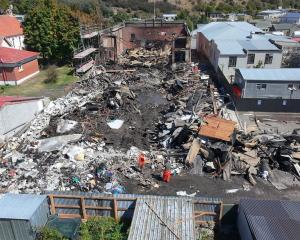
The 29% drop was captured in the Central Otago District Council’s annual residents survey and released to councillors last week.
The survey, with 455 respondents, went out in June, right when elected members voted in favour of an "unpopular" 18.5% rates increase, and Ms Alley believed this influenced the numbers.
The community did not "feel heard" after the increase was implemented despite multiple pleas from the community that they could not afford it, but councillors made the decision "based on what was right", she said.
New Zealand local government specialist Andy Asquith told The News communities did not often understand the demands on their local councils.
"People always think of the rates bill ... what people don’t think about is that they are paying for decades of under investment."
To Ms Alley, this rates increase and survey revealed wider issues around local government and "the ability to keep deriving income from a single source — which is predominantly people’s pockets".
She said many people in Central Otago did not have the ability to watch a six-hour workshop or read the same 300-page reports councillors did to understand why the rates increase was needed.
"We don’t want to dull it [information] down ... but we are missing entire demographics because people don’t have the time."
Ms Alley said "world-wide apathy for democracy" was also at play with a 29% drop, but she was hopeful for what she could achieve before the 2025 election.
After being sworn in as mayor of Central Otago last Wednesday to replace mayor Tim Cadogan, she plans to do as much as she can "to be visible and show this is a great job".
However, she was not ready to reveal the specifics of her plan yet.
Her aim was to have every seat "hotly contested".
Despite declining popularity for elected members, residents of the district still showed satisfaction for their council.
Seventy-six percent of respondents said they were pleased with the council’s performance and that the top priority for the district was water supply.











